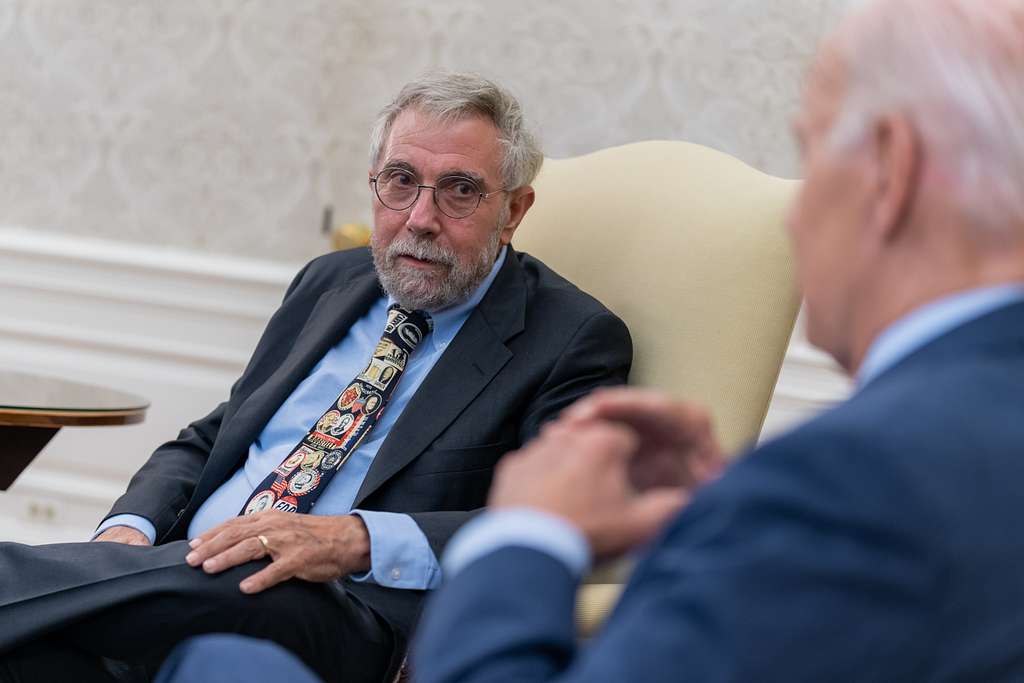Krugman Warns Tariffs Risk Destabilizing Inflation Expectations

Sign up for Global Macro Playbook: Stay ahead of the curve on global macro trends.
Are President Trump’s tariffs setting the stage for a sustained period of inflation, or are they just a temporary blip on the economic radar? Nobel laureate Paul Krugman warns that the risk of destabilizing inflation expectations is very real, even as recent data paints a mixed picture. While the latest consumer price index (CPI) report showed inflation easing in February, economists are concerned that the tariffs will reverse this progress.
"If it’s like 25% tariffs on everything around the world, even that is a one time pop in prices unless it somehow feeds into a continuing process,” Krugman said in a recent Bloomberg interview. "And one of the great unknowns is whether it’s a one time hit, which the Fed ignores because it believes that [it doesn't] lead to sustained inflation, or is this something that’s going to destabilize inflation expectations and end up being a longer term problem.”
New data highlighting declining consumer sentiment suggests that markets fear tariffs' negative impacts are outweighing any potential benefits. The University of Michigan's latest sentiment survey showed that consumer sentiment slumped in March to the lowest since November 2022, with much of that attributed to more inflation worries.
"Many consumers cited the high level of uncertainty around policy and other economic factors; frequent gyrations in economic policies make it very difficult for consumers to plan for the future, regardless of one’s policy preferences," Joanne Hsu, the survey’s director, said in a statement. "Consumers from all three political affiliations are in agreement that the outlook has weakened since February."
While the February CPI report showed that the annual inflation rate eased to 2.8%, below expectations, analysts caution that this number does not yet incorporate the full impact of the recently implemented tariffs. And the longer-term trend still points to troubling consequences, as that same report showed housing costs – which make up more than one-third of total weighting – increasing.
Moreover, the Organisation for Economic Co-operation and Development (OECD) recently cut its U.S. and global economic outlooks, citing Trump's trade tariffs as a key factor weighing on growth. The OECD now projects US GDP growth to slow to 2.2% in 2025, and also updated its inflation forecast, saying price growth was set to be higher than previously expected.
"What we are suggesting is that some of the measures in relation to trade, some of the measures in relation to tariffs, and the related policy uncertainty, certainly are having an impact on inflation," Mathias Cormann, secretary-general of the OECD, told CNBC on Monday.
Economists are also pointing to specific sectors where tariffs are already having a visible impact. The National Association of Home Builders estimates that tariffs could add as much as $10,000 to the cost of the average new home. This is a clear example of how tariffs can directly translate into higher prices for consumers.
Krugman argues that the real danger is that these price increases, combined with broader economic uncertainty, could lead consumers and businesses to expect higher inflation in the future. If these expectations become ingrained, it could create a self-fulfilling prophecy, making it much harder for the Federal Reserve to keep inflation under control. Those concerns are being watched closely by central banking organizations.
For now, jury is still out on whether tariffs will ultimately lead to sustained inflation. As Krugman put it, "[The] point is actually nobody knows, which is part of this environment of extreme uncertainty that is now surrounding everything."